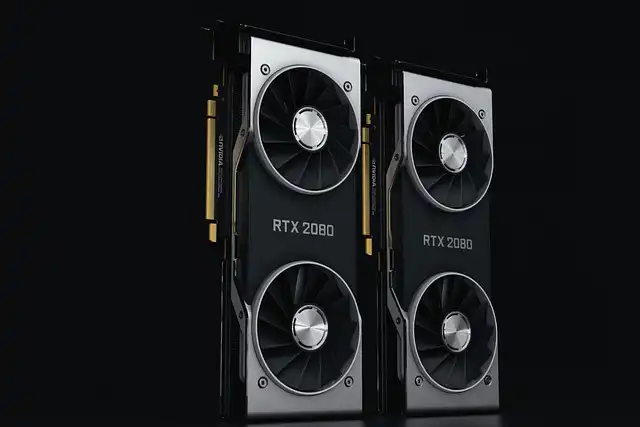Jensen Huang & Nvidia: AI, Power, and the Future

A look into Jensen Huang, Nvidia's founder, and the company's pivotal role in AI. Explores power consumption, Huang's leadership, and Nvidia's impact on technology and humanity's future. High-performance computing is discussed.
John Hawkins does not work for, consult, own shares in or obtain funding from any kind of firm or organisation that would benefit from this write-up, and has actually divulged no relevant associations past their academic visit.
Huang believes AI is a pressure for development, spurring a brand-new industrial change, creates Witt. Huang enthused “the marginal price of computation has actually gone to no, and this has actually opened up incredible possibilities”. He disregards concerns, saying of AI: “all it is doing is refining data”.
AI’s Power Consumption Concerns
This is not the only risk positioned by individuals of Nvidia’s GPUs for AI. They use a great deal of power. Witt observes that a trainee getting ChatGPT to create an essay makes use of as much power as running a microwave for an hour. A Google search using AI consumes 10 times the power of a typical search.
Witt sees the advancement of AI as meeting the 1964 vision of science-fiction author Arthur C. Clarke. Huang would certainly be less keen on a later work by Clarke, that co-wrote the screenplay of Stanley Kubrick’s 2001: A Room Odyssey, depicting a sentient computer system that eliminates humans.
When its GPUs started to be utilized to extract bitcoins, “lots of inside Nvidia were horrified”. Witt reports that many of the Nvidia designers to whom he talked “pertained to crytpo as an idiotic diversion from the company’s even more vital job” and were worried regarding the energy-intensive crypto mining’s contribution to climate change.
Nvidia’s Origins and Evolution
Founded to generate video game graphics, Nvidia pioneered “parallel processing”: doing greater than one point each time. It established a digital circuit card that can promptly carry out lots of mathematical computations, called a “graphics refining device” (GPU). Nvidia looked for other users that needed a whole lot of computing power.
Jensen (originally Jen-Hsun) Huang was birthed in Taiwan. His household’s story is a classic instance of successful immigrants. His dad was a chemical engineer and his mommy a main educator. They were hardworking parents who made sacrifices to offer their children effective lives. They sent Jensen and his bro to stick with an uncle in the US when he was 10 and joined him two years later, Witt composes.
Around 2015, Huang developed his look: a black natural leather coat with black trousers and footwear.
For journalist Stephen Witt, what he terms “The Concern” (shared by probably “the 3 most pointed out computer researchers to life”) was an objective for creating The Assuming Machine, his history of Nvidia. His book, which functions as a bio of its owner, asks: what does the expert system Nvidia promotes suggest for the future of humanity?
Huang’s Leadership Style
Witt appears to admire Huang. Unlike some of his peers, he does not appear to think that being abundant and a gifted designer makes him the most intelligent individual in any room and a specialist in any type of area.
Jensen Huang believes inquiries of whether expert system could damage humankind are fear-mongering– and obstruct of development. The owner of Nvidia, which makes the integrated circuit making it possible for AI such as ChatGPT, he was rankled when a journalist wondered if he is “an AI Robert Oppenheimer”. He’s not constructing bombs, he reacted.
While Witt calls Nvidia’s headquarters a “panopticon”, most of his staff appear to like it– and to hold Huang in terrific esteem. As Nvidia states in its annual report, “our workers tend to stay and come”. Obviously, as Witt notes, operating at Nvidia has made most of them “insanely, exceptionally rich”.
Nvidia grew around the millenium, when Huang initially became a billionaire. Its share rate crashed after the dot.com bubble burst, however the business struggled back. By 2016, Huang was a billionaire once more. He is now thought to deserve over US$ 100 billion. Nvidia’s 30,000 employees generate approximately over $1 million profit a year.
Huang explained himself to Witt as “a significant individual doing significant job”. Huang could be a requiring boss, and could yell at staff members in front of their peers when let down with their efficiency.
Nvidia’s Impact & Nobel Prizes
To attract a superhero analogy, it appears to me Huang is extra the gifted, workaholic genius Reed Richards of the Wonderful 4 than the volatile, big-headed Tony Stark from Iron Male (that is typically contrasted to Elon Musk).
The owner of Nvidia, which makes the computer chips enabling AI such as ChatGPT, he was rankled when a reporter questioned if he is “an AI Robert Oppenheimer”. Nvidia boomed around the turn of the century, when Huang first came to be a billionaire. Nvidia added to function that won Nobel prizes in both physics and chemistry in 2017. While Witt calls Nvidia’s headquarters a “panopticon”, most of his team seem to like it– and to hold Huang in fantastic esteem. Of course, as Witt notes, working at Nvidia has actually made many of them “hugely, unbelievably rich”.
Nvidia contributed to function that won Nobel rewards in both physics and chemistry in 2017. Scientists used the firm’s GPUs to analyse substantial quantities of information generated by laser beams, spotting gravitational waves, and the detailed structure of solitary cell organisms. This assisted them find out more concerning phenomena at both a really little and really huge scale.
He persuades 12 hours a day, six days a week. Maybe this is why neither of his children initially desired a career in tech, writes Witt. His daughter wished to be a chef and his son a digital photographer. Both finished up at Nvidia: the daughter is an advertising director and the son is in the robotics team.
1 artificial intelligence2 GPU
3 High-performance computing
4 Jensen Huang
5 Nvidia
6 Stephen Witt
« Thomas Neurath: Legacy in Art Publishing at Thames & HudsonUK Carnegie Medals: Celebrating Young People’s Literature & Illustration »
